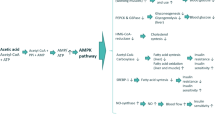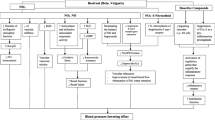Abstract
The effect of a naturally occurring plant phenolic constituent (the acylphloroglucinol derivative, jensenone, derived from Eucalyptus jensenii) on the food intake of two folivorous marsupials, the common ringtail (Pseudocheirus peregrinus) and the common brushtail possum (Trichosurus vulpecula) was studied. When fed diets containing varying concentrations of jensenone, both species regulated their intake of jensenone so as not to exceed a ceiling intake. This ceiling was about twice as high for common ringtails as for common brushtails from northern Australia. Southern populations of common ringtails showed greatly reduced capacities to tolerate jensenone. When common brushtails were injected (0.5 mg · kg−0.75 body mass) with ondansetron (a selective antagonist of serotonin 5HT3 receptors), they ate significantly more jensenone than animals injected with physiological saline. The same pattern was observed when common ringtails were fed diets containing both jensenone and ondansetron (0.0035 mg · g−1 wet mass of diet). Ondansetron injection had no effect on food intake when the food did not contain jensenone while the addition of higher doses of ondansetron to diets of common ringtails very slightly reduced food intakes of a non-jensenone diet. When common brushtails were given 50 mg of jensenone by gastric lavage, their average subsequent intake of dietary jensenone matched the difference between the daily threshold and the dose given, although the response of individuals was highly variable. Lavage with water alone had no effect on subsequent jensenone intake compared with the pre-dose period. We interpret these results as evidence that the antifeedant effects of jensenone and related compounds are partly mediated by serotonin action on 5HT3 receptors most likely via “nausea” to condition a food aversion.
Similar content being viewed by others
Author information
Authors and Affiliations
Additional information
Accepted: 6 August 1998
Rights and permissions
About this article
Cite this article
Lawler, I., Foley, W., Pass, G. et al. Administration of a 5HT3 receptor antagonist increases the intake of diets containing Eucalyptus secondary metabolites by marsupials. J Comp Physiol B 168, 611–618 (1998). https://doi.org/10.1007/s003600050183
Issue Date:
DOI: https://doi.org/10.1007/s003600050183




